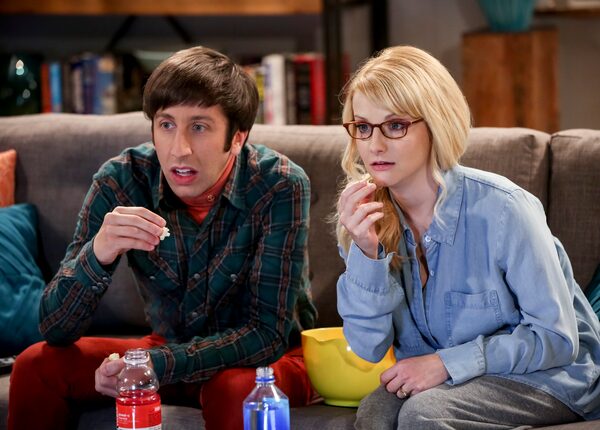
The Big Bang Theory returns Sept. 24 for what is likely its final season as the top old-school sitcom of the past decade.Michael Yarish
It ill behooves anyone to suggest that the old-fashioned sitcom is a dinosaur of an art form. Those shows made with three cameras, a live audience and canned laughter have never died. In fact, when Roseanne returned and was a huge hit, there was a scramble in the TV racket to make more of the genre.
The Big Bang Theory (Monday, CBS, CTV, 8 p.m.) returns for what is likely its final season as the top old-school sitcom of the past decade. Since its arrival, with a woefully maladroit pilot in 2007, it has morphed and evolved while remaining a traditional sitcom that plays on stereotypes and tropes. It’s a remarkable feat.
What is also notable is that Big Bang is so remarked-upon. It is studied closely and not just by persons who want to find the secret to its success and copy it. It is studied in academia and by an awful lot of people, especially men, looking for insults aimed at the male nerd, by women looking for evidence of misogyny and yet other women looking for a feminist message. For a show created to make the audience laugh and to help broadcasters sell adverts, Big Bang has a lot of cultural baggage. A lot.
For several seasons, Big Bang was essentially Penny being a ditz, Leonard being a hopeless neurotic and Sheldon being a fussbudget genius. Added to the mix were the eternally tacky Howard Wolowitz and the painfully shy Rajesh Koothrappali and what you got were four guys very much intimidated by Penny the attractive, aspiring actress. What you also got, according to some theorists, was an attractive woman presented as dumb, and situated in the show as a potential sexual reward for the male characters.
To this day, even as the series has matured and expanded its scope, you can find this questions being discussed online: “Is The Big Bang Theory a feminist show that mocks the incel/Gamergate type of nerd male?” Don’t even go there.
Meanwhile, there exists a school of thought that sees Big Bang as guilty of what is called “Adorkable Misogyny.” This view, which has a particular emphasis on Howard, interprets the main male characters as sexist pervs but allowed to get way with it being being presented as adorable in the end. In the matter of Howard, there is merit to this theory. For several seasons, Howard did everything possible, sometimes bordering on the criminal, to pick up women. He stalked, he lied and he once arranged for a spy-drone to gawk at the house where the contestants on America’s Next Top Model lived. So that he could leer from the comfort of his laptop at home.
Simultaneously, there are those who see Big Bang as very progressive. You see, through this prism, the male nerds are now more adult and mature because of their relationships with women. These nerds are more aware and grown-up because the women in their lives obliged them to be more aware of the world outside their den of geekdom. Also, these days, Penny is a sharp-witted character and both Bernadette and Amy Farrah Fowler are successful, accomplished scientists. Being in a relationship with these women makes science-geek guys more content and better-off as human beings. The theory goes, in any case,
Eleven seasons is a long time in television and a lot has changed since Big Bang made its debut in 2007. Even as the show still has many fans who feel deep affection for it, and for all the central characters, no matter how flawed, there is a reckoning coming.
Just as actor Molly Ringwald found she was deeply disturbed and rather disgusted by the sexism she saw when she re-watched the beloved movies The Breakfast Club and Sixteen Candles, people will look at The Big Bang Theory, sooner or later, and be repulsed. It’s not that the traditional sitcom is a dinosaur; it’s just possible that the characters will very soon be seen as relics of another, ancient age.